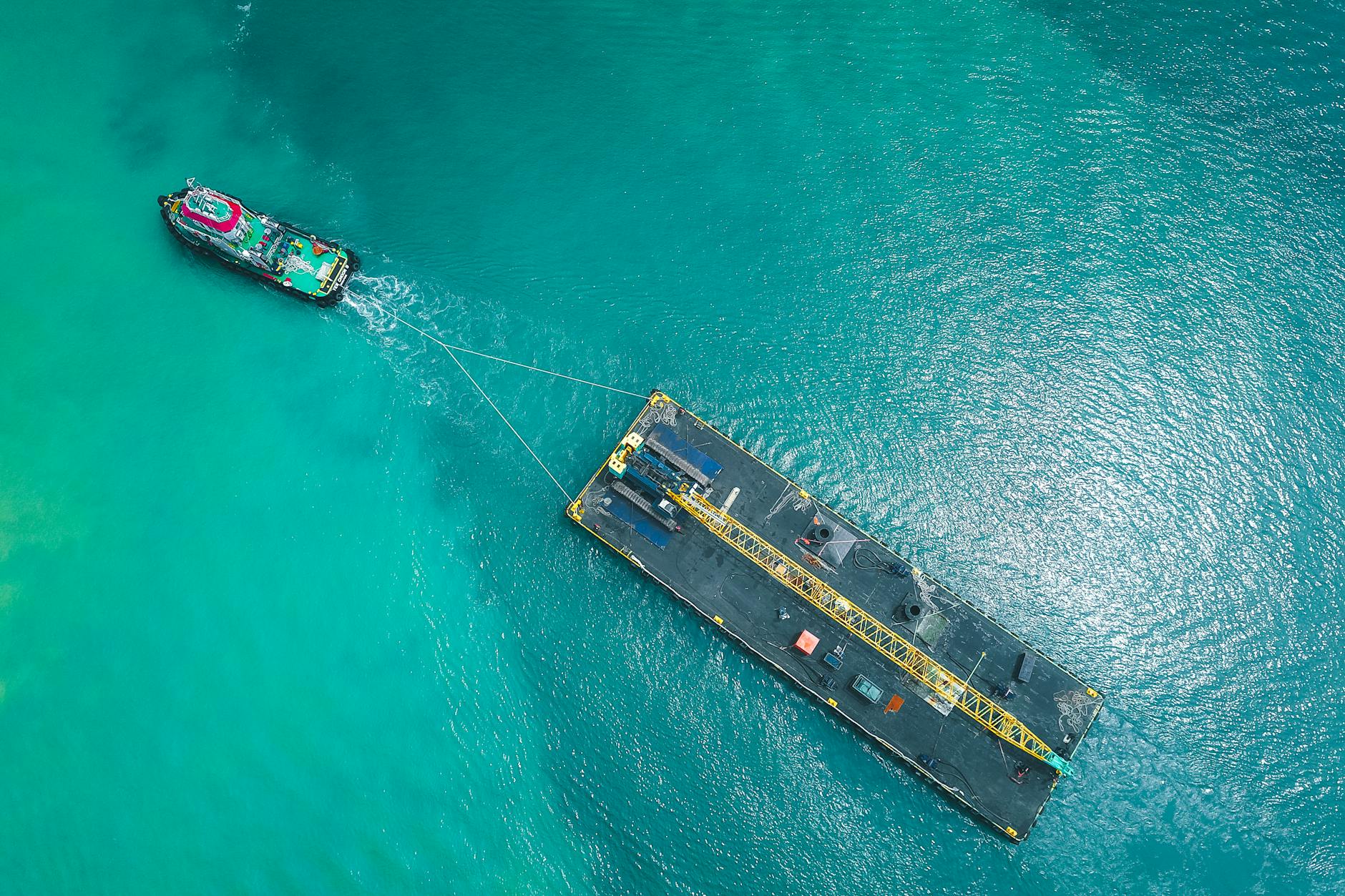How to Revolutionise Logistics with Eco-Friendly Practices in Australia

Embracing Green Logistics
Incorporating eco-friendly practices into logistics can transform how businesses operate, particularly in 3PL services. By prioritising sustainable solutions, companies not only reduce their environmental impact but also promote a greener future. Take inspiration from local initiatives like Kings Park and Botanic Garden's eco-projects, which highlight the potential of integrating nature-friendly strategies in logistics.
Reducing packaging waste is a significant step in this sustainable journey. Opt for reusable and biodegradable materials to minimise environmental impact. Not only does this help decrease landfill contributions, but it also promotes a circular economy. Implementing sustainable transport options is another crucial component, as it reduces carbon emissions and promotes energy efficiency. By investing in electric or hybrid vehicles, logistics providers can significantly cut down their carbon footprint.
Energy-efficient warehousing is an area ripe for innovation, where reducing energy consumption can yield significant benefits. Consider installing LED lighting and utilising solar power to support eco-conscious operations. Emulating the sustainability programmes at Elizabeth Quay, businesses can take proactive steps to improve their ecological impact.
In the logistics sector, adopting these eco-friendly practices can over time reshape the perception and operations of pick packing and 3PL providers, paving the way for a greener industry.
Enhancing 3PL Sustainability
Eco-Friendly Partnerships
As someone deeply committed to sustainability within logistics, I understand the significance of eco-friendly partnerships. Collaborating with 3PL providers who prioritise ecological balance not only enhances ecommerce logistics efficiency but also aligns with efforts to minimise environmental impact. By choosing partners invested in reducing carbon footprints, we can create a more sustainable supply chain that mirrors initiatives seen in the sustainability programmes at Elizabeth Quay. Engaging with businesses dedicated to green practices certainly requires initial investment but yields long-term benefits for both the environment and operations.
Technology for Efficiency
Incorporating advanced technology into our logistics frameworks can significantly boost efficiency and sustainability. Innovations like real-time tracking and energy-efficient routeing—similar to advancements seen in pick and pack operations—ensure we use resources wisely. Implementing these technologies reduces emissions and cuts down on fuel use, aiding in achieving eco-friendly goals. As seen in projects at the Fremantle Market, utilisation of renewable energy technologies can also add value, ensuring that logistics operations run smoothly and sustainably.
Waste Management Strategies
Effective waste management is vital in forging a path towards sustainable logistics. Strategies such as recycling programmes and biodegradable packaging materials lessen the environmental burden of logistics activities. It’s about integrating solutions that reduce waste outputs and embrace sustainable disposal practices. When companies invest in waste management initiatives, like those described in the reports Jamie often reviews, the focus shifts to creating an ecosystem where sustainability is not just a goal but the norm.
Sustainable 'Pick and Pack' Methods
Incorporating green solutions into the 'pick and pack' process is pivotal for anyone committed to eco-friendly logistics. The approach starts with minimising single-use materials, which play a major role in wasteful practices. For many companies, relying on reusable containers or swapping frequently used plastic wraps with biodegradable alternatives can significantly cut down on landfill contributions. This shift echoes initiatives seen at Fremantle Market, where eco-friendly projects illustrate the impact of sustainable transition.
Optimising packaging techniques is another critical aspect. This involves rethinking box sizes to reduce material use and using advanced software to predict the optimal way to pack items. This precision reduces the empty space within packages, lowers the need for fillers, and therefore, diminishes overall waste as seen in some third party logistics operations.
Implementing recycled materials enhances sustainability further. Many businesses are now sourcing packaging supplies from recycled paper and plastics, creating a cycle of reuse that supports both the environment and their bottom line. Taking these steps mirrors the green ethos of 3PL warehouse facilities dedicated to reducing their carbon footprint through conscious material choices.
For those in the logistics sector striving for sustainable excellence, these methods not only reinforce environmental responsibility but also resonate with consumers increasingly valuing sustainability.
Overcoming Sustainability Challenges
Persuading Stakeholders
Navigating the complex landscape of sustainability in logistics often involves persuading stakeholders to embrace eco-friendly initiatives like 3PL logistics. The journey can be challenging, as stakeholders are typically goal-oriented towards immediate returns. I have found it pivotal to present robust data that emphasises the long-term benefits of sustainability, such as reduced operational costs and enhanced brand reputation. It's important to always spotlight compelling examples, such as the eco-friendly projects hosted at Fremantle Market, which have successfully integrated sustainable practices without compromising on efficiency or financial goals.
Balancing Cost and Eco-Innovation
Implementing greener logistics solutions often means balancing financial investment against eco-innovation. Initial adoption costs may seem daunting, yet the key is to convey the gradual savings accrued from energy efficiency and reduced material waste. For instance, switching to renewable energy sources can initially appear cost-intensive, but it aligns with curbing ongoing expenses and carbon emissions. It mirrors the sustainability programmes at Elizabeth Quay, showcasing how forward-thinking investment can pay dividends over time. This dual focus ensures that you cater to both economic and environmental responsibilities.
Aligning with Environmental Policies
Lastly, aligning logistics practices with environmental policies is essential for forward-looking businesses committed to sustainability. For me, this means keeping abreast of local and international legislation and ensuring compliance through continuous innovations. The integration of policies often guides the structuring of sustainable logistics initiatives, ensuring that your efforts align with broader environmental goals while compelling stakeholders with well-documented regulatory backing. Emphasising policy alignment not only aids in seamless integration but also positions your logistics process as a pioneer within the green space.
Best Practices in Eco-Logistics
Success Stories Shaping Sustainable Logistics
Reflecting on impactful case studies can be enlightening. The eco-friendly projects at Fremantle Market serve as an exemplary model by reducing their carbon footprint through comprehensive recycling programmes and solar energy advantages. These initiatives show how collaboration between stakeholders and local communities can lead to significant environmental benefits.
Commitment to Continuous Improvement
Just as the sustainability programmes at Elizabeth Quay continue to evolve, so too should logistics strategies. Continuous assessment and adaptation are critical, which can involve integrating new eco-friendly technologies and regularly reviewing operations for further green innovations. Embracing change not only aligns with environmental policies but also enhances operational efficiency.
Community Collaborations and Impact
Community efforts play a vital role in advancing sustainability. Kings Park and Botanic Garden's eco-initiatives highlight the importance of fostering partnerships with local organisations. By working together, businesses and communities can create shared value, driving forward eco-conscious practices in logistics and beyond. This collaborative spirit can tackle sustainability challenges more effectively, prompting both logistical and environmental progress.
By aligning with these practices and strategies, we can reshape logistics into a more sustainable system. Embracing these changes within the Australian context can lead to a future where logistics is not only efficient but also environmentally responsible, ultimately motivating us all to make a greater impact. The key lies in fostering a sustainable mindset while prioritising long-term ecological benefits.


